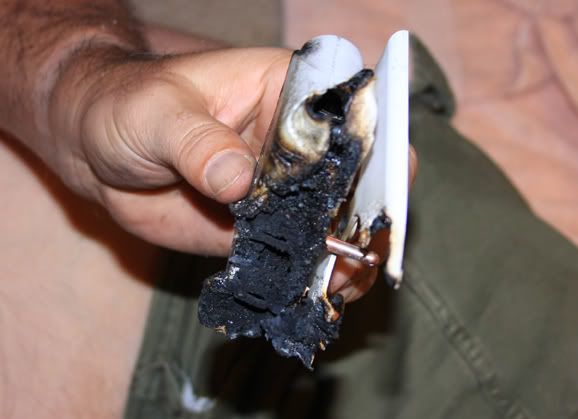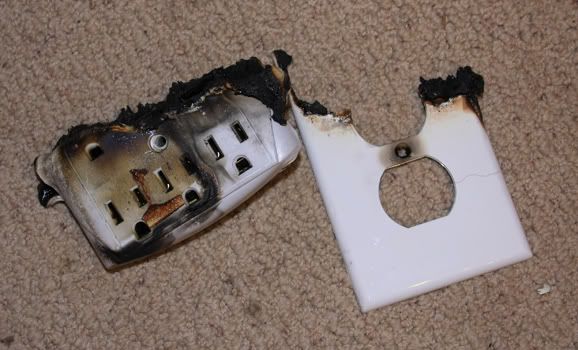Originally Posted by
SavageWill
http:///forum/post/2722693
i am actually going to school to be an electrician. A GFCI is a safety device to protect people. a breaker is a safety device to protect equipment. a gfci measures amps going out and amps coming in and if there is any differance it will trip where as a breaker will only trip if you are drawing to many amps through a circuit. so with something breaking and getting wet a gfci will trip imidiatly where a breaker can take a couple of seconds longer which when water is involved could be a couple of seconds to long.
Great trade to be in, personally I have had over 32 years as a union electrician and am now retired and if I may add to your response, which is right on.
I have seen 20 amp circuit breakers hold for over 25 amps and never trip.
How the GFCI (Ground Fault Circuit Interrupter) Works
In the home's wiring system, the GFCI constantly monitors electricity flowing in a circuit, to sense any loss of current. If the current flowing through the circuit differs by a small amount from that returning, the GFCI quickly switches off power to that circuit. The GFCI interrupts power faster than a blink of an eye to prevent a lethal dose of electricity. You may receive a painful shock, but you should not be electrocuted or receive a serious shock injury.
Here's how it may work in your house. Suppose a bare wire inside an appliance touches the metal case. The case is then charged with electricity. If you touch the appliance with one hand while the other hand is touching a grounded metal object, like a water faucet, you will receive a shock. If the appliance is plugged into an outlet protected by a GFCI, the power will be shut off before a fatal shock would occur.
People we are talking in milliseconds here, much faster than a lethal shock can be administered.








